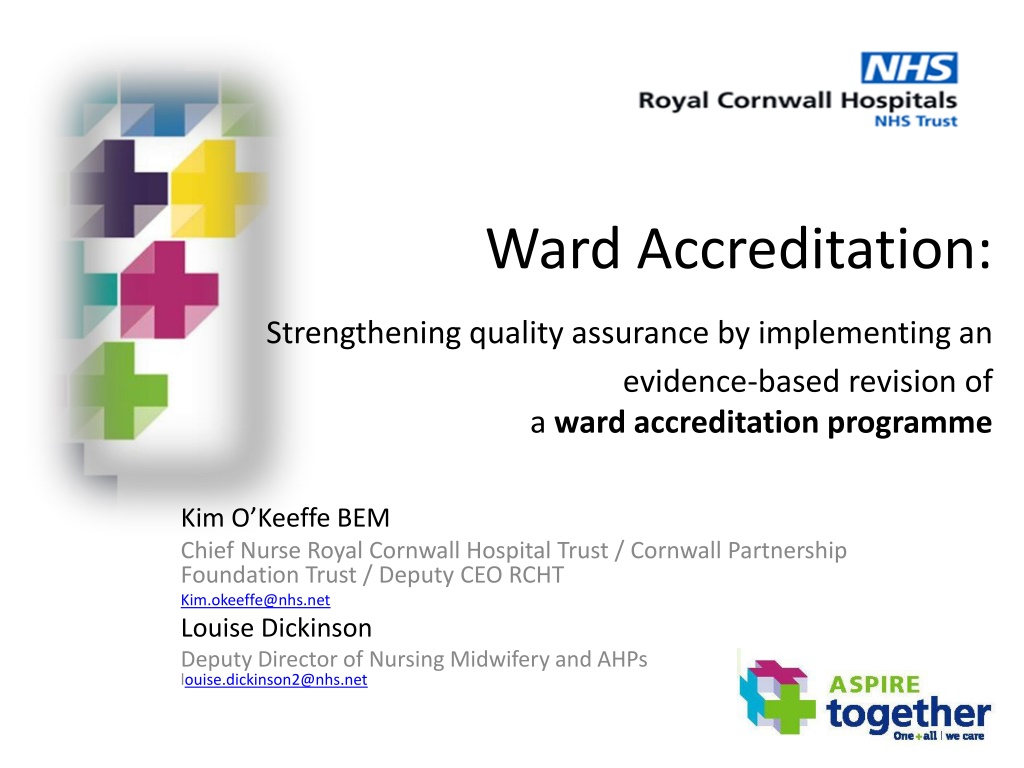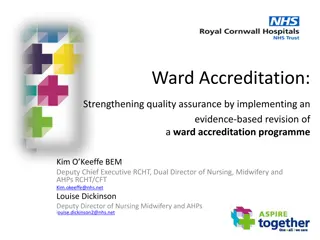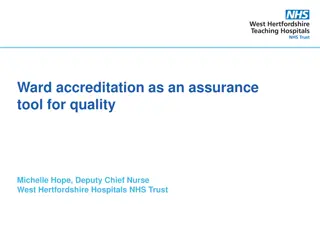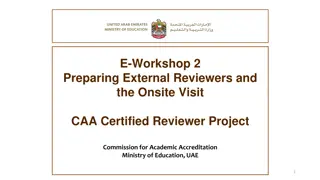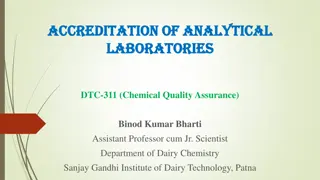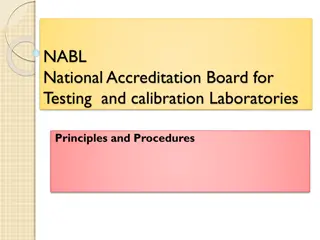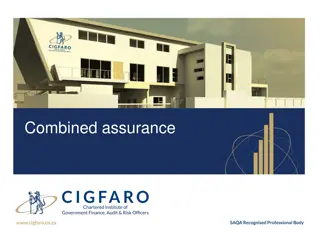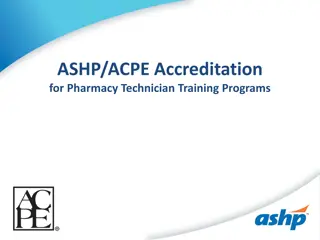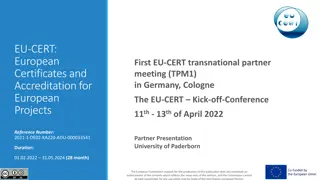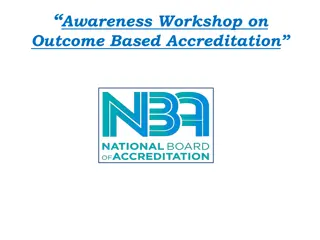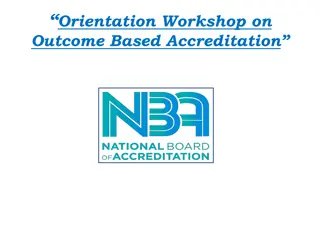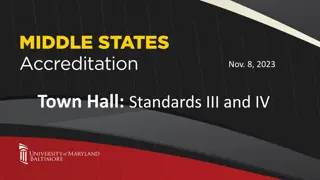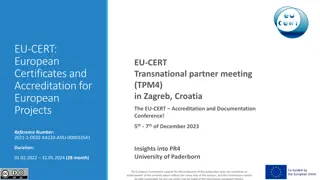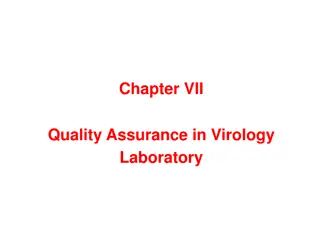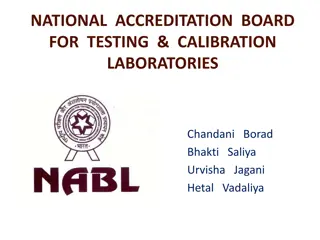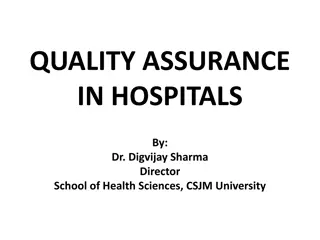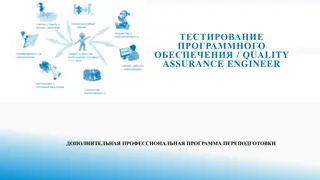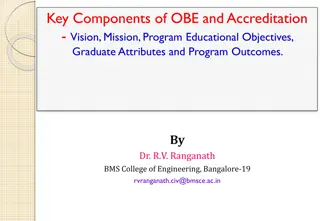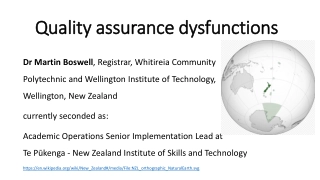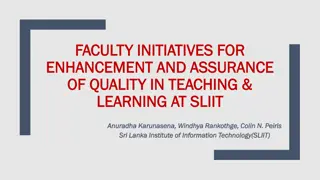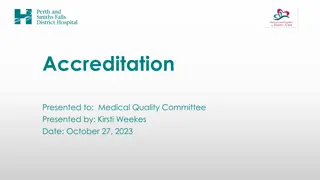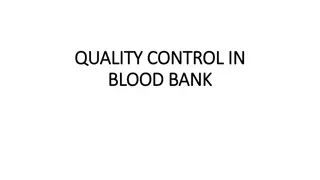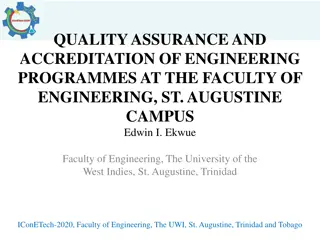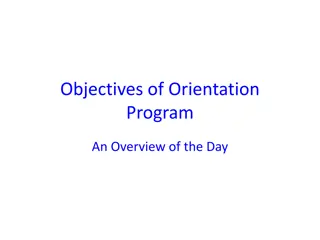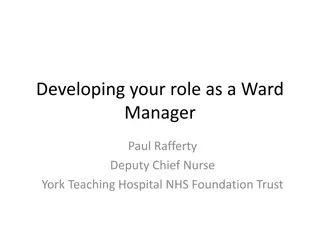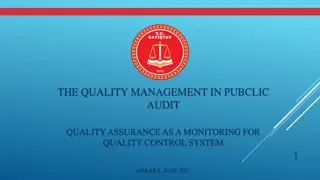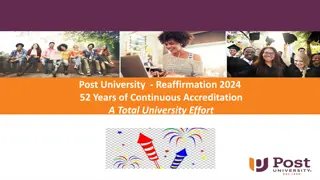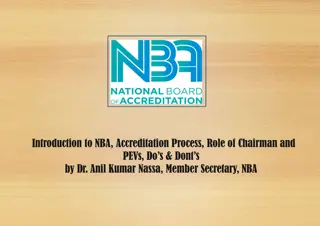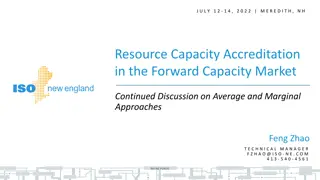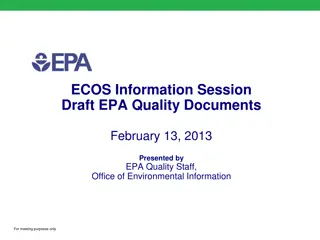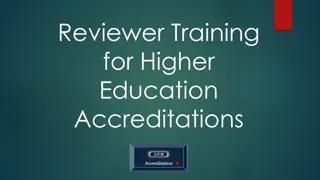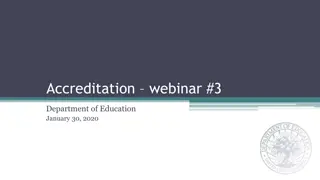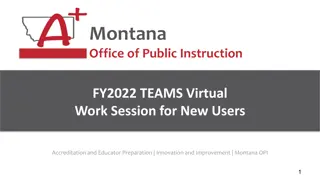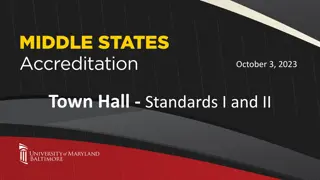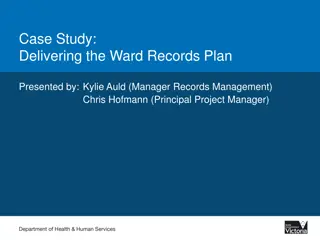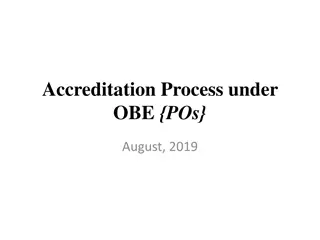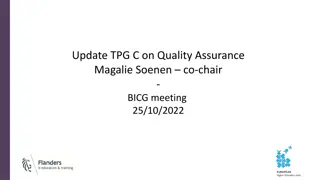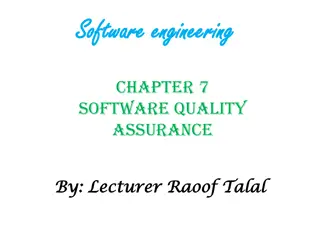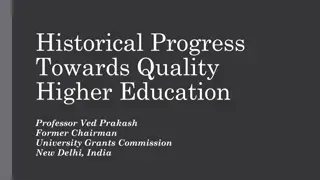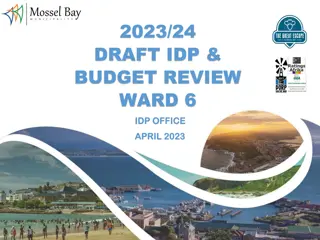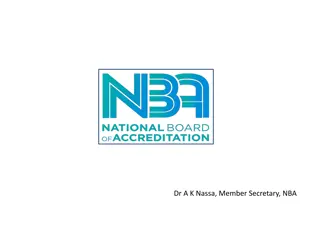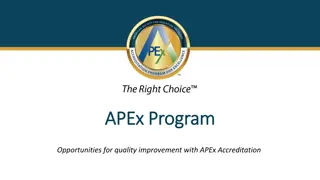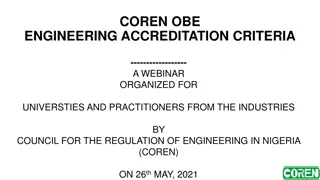Strengthening Quality Assurance Through Evidence-Based Ward Accreditation
This presentation by Kim O'Keeffe and Louise Dickinson discusses the implementation of an evidence-based revision of a ward accreditation program at Royal Cornwall Hospital Trust. It covers the program's objectives, challenges faced, solutions offered, and the approach taken to create psychological safety and engagement within the workforce.
Download Presentation

Please find below an Image/Link to download the presentation.
The content on the website is provided AS IS for your information and personal use only. It may not be sold, licensed, or shared on other websites without obtaining consent from the author. Download presentation by click this link. If you encounter any issues during the download, it is possible that the publisher has removed the file from their server.
E N D
Presentation Transcript
Ward Accreditation: Strengthening quality assurance by implementing an evidence-based revision of a ward accreditation programme Kim O Keeffe BEM Chief Nurse Royal Cornwall Hospital Trust / Cornwall Partnership Foundation Trust / Deputy CEO RCHT Kim.okeeffe@nhs.net Louise Dickinson Deputy Director of Nursing Midwifery and AHPs louise.dickinson2@nhs.net
Objectives 1. Provide context to the introduction of our ward accreditation programme 2. Describe the development of the programme and our early adoption successes 3. Reflect with you on the dichotomy of programme success and waning assurance 4. Share our learning from the adoption of the latest workforce evidence base to drive new assurance confidence
St Michael s Hospital Royal Cornwall Hospital West Cornwall Hospital 2017
The challenges we faced as we went in to Special Measures Unbelievable levels of scrutiny Challenged leadership and continuity Clinical quality and patient safety variations across all inpatient wards The need for assurance, not re- assurance versus false assurance Culture: inspection mentality versus continuous improvement
Ward Accreditation ? Why what did it offer a Trust in special measures? What which framework to adopt? How with a workforce experiencing low morale and disenfranchised? Who has capacity and capability to lead such a programme and embed a transformational change?
Ward Accreditation - The Solution Why an improvement framework we need to improve What we have expertise within our buddy hospital of a successful framework How our Ward Leaders want this type of practical help to improve quality and safety for their patients and staff Who Dedicated Senior Nurse Leader support from our buddy hospital, was enabled utilising special measures financial support
Our approach to ASPIRE: Creating the conditions for psychological safety Board support and leadership - fundamental Leadership group ownership and authenticity Learning from other Trusts: RDE, Salford Royal, UCLH Wide workforce engagement in creating our approach (all disciplines) ASPIRE Culture of collaborative development and testing Being clear what is was and what it wasn't Pace: we can do this we want to do this First pilot wards celebrated and acknowledged Deliberately not weighted in first 12 months: psychological safety shared learning Certificates, Trust Board attendance and Gold wards attendance at awards evening Launched Trust-wide six-months after going into special measures COMITMENT IN ACTION NOT WORDS
What did we measure? Patient experience questionnaire Staff experience - questionnaire Staff knowledge - interview Observation of practice - observed Environmental standards observed Well led standards - interview Documentation - observed
How did we measure? Multi-professional Team allocated to a ward with a Head of Nursing or Senior Corporate Nurse A day was put aside to conduct the Accreditation Programme Unannounced visit Wide team engagement on visit Debrief to team at end of Accreditation focussing on what went well first , areas for improvement Data collection and electronic data system supports outcome calculation
ASPIRE outcomes: first round 5 wards were awarded Bronze 17 wards were awarded Silver 2 wards were awarded GOLD
Our first ASPIRE GOLD wards Our reflections on going for Gold Wellington Ward (Respiratory) Cardiac Investigations Unit
Our first ASPIRE GOLD wards Staff reactions: Over the moon Amazing Incredible news for team after so much pressure Proud Icing on the cake Providing best care for patients Real Buzz Fantastic achievement
ASPIRE Outcomes: The Next Round Staggered re-accreditation intervals depending on outcome Twelve months in we had 19 silver wards and 5 gold wards Assurance concerns arising: non- alignment with other quality metrics, complaints and serious incidents. A weighted version was introduced and scoring adjusted managing expectations from Ward-to-Board
A new evidence-based approach March 2018 NIHR Themed Review https://www.dc.nihr.ac.uk/themed-reviews/Research-on-ward- staffing.htm
Two Significant Facts High Registered Nurse contact time with patients strongly associated with reduced harm and low mortality rates (linked to reduced failure to rescue incidents) Ward Climate, the cohesiveness of the ward team, corelates to levels of patient satisfaction with care high cohesiveness equals high satisfaction and levels of safety Senior Clinical Cabinet discussions felt that these 2 elements were not explicit in our programme
Outcome: ASPIRE Version 4: Three new measures added: Direct Care Time Observations of Care Ward Climate survey to replace staff questionnaire And a full review of all questions was undertaken (significantly reviewed and discussed and senior team confident that the new focus on the evidence-based measures) Piloted on one ward in July (with supportive measures in place) = Red status awarded.
ASPIRE Version 4 August 2019 Four wards with concerns reviewed: Two wards White (previous Silver) Two wards bronze (one previous Silver and one Gold) How does this feel?
ASPIRE Version 4 Current status September 2022. Silver 1 Bronze 11 White 13
The ASPIRE Instruction Manual was developed to ensure standardisation and consistency of application
ASPIRE Version 4 Progress RCHT: Critical Care ED OPD Theatre Paediatrics Maternity And Published article to share our experience and outcomes
https://www.researchgate.net/profile/Frazer-Underwood/publication/344250921_Strengthening_quality_assurance_by_implementing_an_evidence-https://www.researchgate.net/profile/Frazer-Underwood/publication/344250921_Strengthening_quality_assurance_by_implementing_an_evidence- based_revision_of_a_ward_accreditation_programme/links/5f60b5eaa6fdcc1164135844/Strengthening-quality-assurance-by-implementing-an-evidence- based-revision-of-a-ward-accreditation-programme.pdf?origin=publication_detail
Cornwall Foundation Trust No programme in place. Agreed to include as a quality priority. Strong support from Governors. Support from Quality Leads. Learning from RCHT process.
Cornwall Foundation Trust current position: 13 Community hospital wards: 7 bronze award 6 white award 9 Mental Health Wards: 2 bronze 7 white Findings reflect current concerns
Next Steps Going DIGITAL! currently uploading the questions. Adapt the revised programme to MIU s, Community areas. Re-evaluate overall programme again next month 12 month review. Would we do anything differently?
